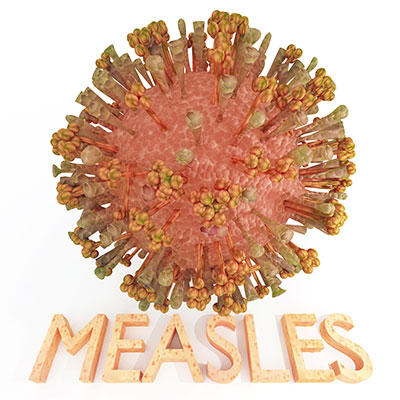Officials confirm measles in Midwest and South

There are no known cases of measles in Iowa. The last Iowa case confirmed by the State Hygienic Laboratory occurred in 2011.
The Illinois Department of Public Health announced that on Jan. 9, a passenger with a confirmed case of measles arrived in the International Terminal of the airport. In the announcement posted on its website, the Illinois agency provided times and locations of potential exposures from Jan. 9 – Jan. 13.
On Jan. 10, another passenger with a confirmed case of measles arrived in Terminal 5 at O’Hare and departed on a domestic flight from Terminal 1. Officials estimated the time of potential measles exposure from this case to be from 6:30 a.m. to 1 p.m. in the terminals and possibly at other locations in the airport.
Another confirmed measles case was reported in a University of Indiana Bloomington student with possible exposure dates ranging from Jan. 2 through Jan. 6. More information about this case is posted on the Monroe County Health Department website.
The fourth case was announced by the Arkansas Health Department of Health on Jan. 12 and updated on Jan. 16. The agency estimates that as many as 150 people in the Little Rock area may have been exposed to measles from Jan. 9 – 11. The measles patient also was a passenger on the Jan. 10 United flight 5314 from O’Hare to Little Rock, and may have exposed fellow passengers and emergency room staff at the University of Arkansas Medical Sciences on Jan. 10 and 11.
Health officials also reported that anyone infected from these exposures could develop symptoms as late as Jan. 31. Symptoms of measles include rash, high fever, cough, runny nose and red, watery eyes. Those who develop symptoms of measles are asked to call their health care provider before entering the doctor’s office.
Measles can cause serious complications such as pneumonia and encephalitis (swelling of the brain). It is spread easily through the air when someone coughs or sneezes. People can also get sick when they come in contact with mucus or saliva from an infected person.
Information about measles from the CDC:
- Measles can be prevented with MMR (measles, mumps and rubella) vaccine. Two doses of MMR vaccine are about 97 percent effective at preventing measles; one dose is about 93 percent effective.
- Measles is highly contagious and the virus can live for up to two hours in an airspace where the infected person coughed or sneezed. If other people breathe the contaminated air or touch the infected surface, then touch their eyes, noses, or mouths, they can become infected.
- Measles is so contagious that if one person has it, 90 percent of the people close to that person who are not immune will also become infected.
- As many as one out of every 20 children with measles gets pneumonia, the most common cause of death from measles in young children.



